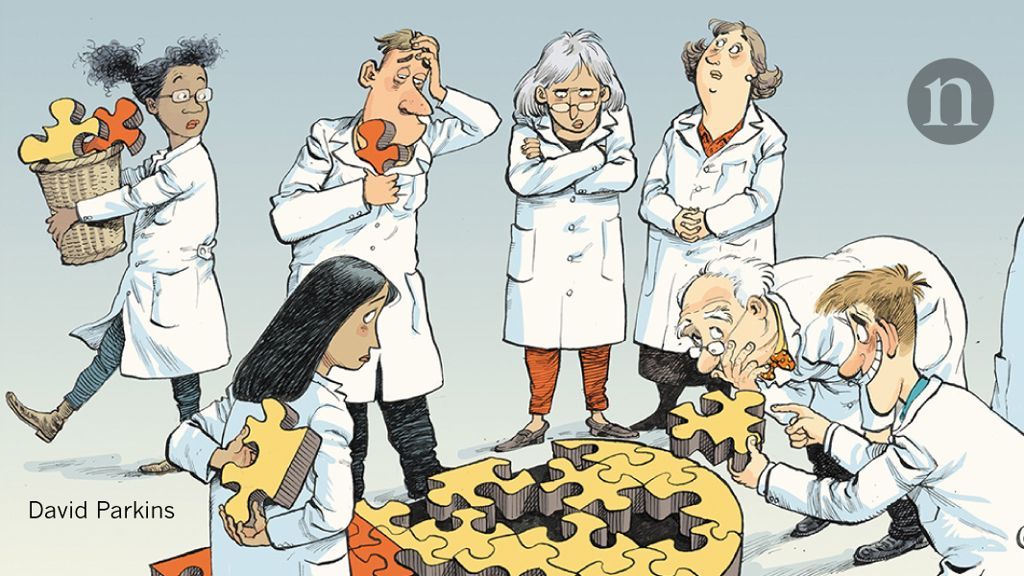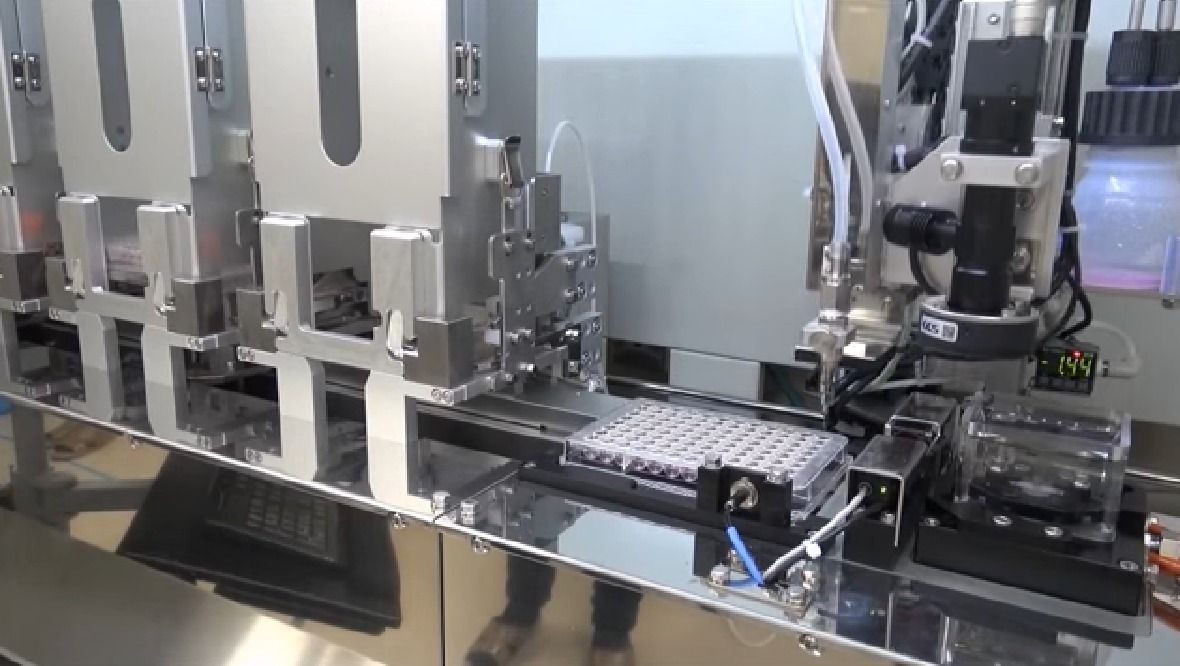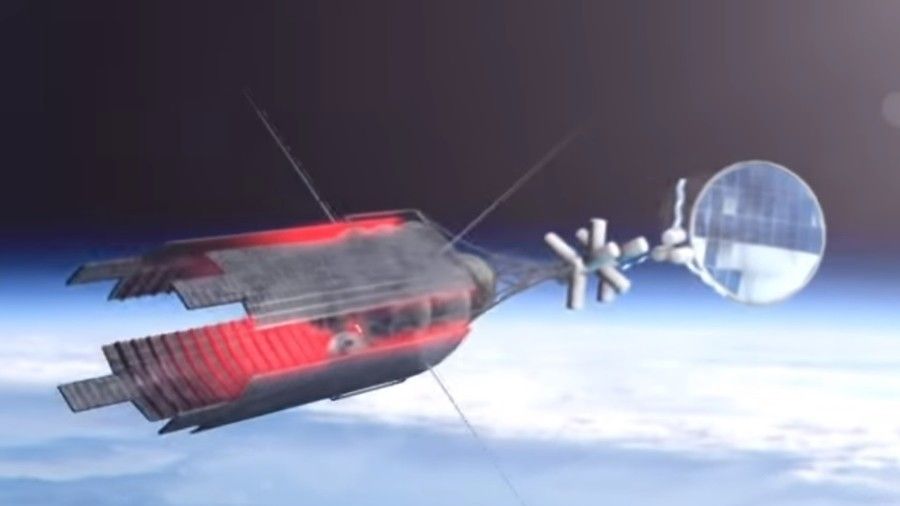Page 8570
Nov 15, 2018
Be open about drug failures to speed up research
Posted by Derick Lee in category: biotech/medical
Practices to enable more-thorough, earlier analyses of failed developments should be adapted to treatments for other challenging diseases, and should be part of regulators’ responsibilities. This will ensure that clinical research evaluates treatments faster and with more certainty.
Access to evidence from disappointing drug-development programmes advances the whole scientific process, explain Enrica Alteri and Lorenzo Guizzaro.
Nov 14, 2018
Twenty-First Century Warfare: Secret and Silent Frequency Wars
Posted by Victoria Generao in categories: biotech/medical, internet, military, mobile phones
It’s imperative that Humanity understands the reality of warfare in these times when advanced and secret technologies are used against us on a daily basis.
From WiFi and cell phone frequencies to televisions and microwave ovens on up to the most exotic sonic weapons—it’s all disruptive and even lethal to the Human body and mind.
Because these weapons are silent and invisible, the war-loving aspects of society have been able to experiment with these methods for decades but the time for secrecy and these covert attacks on the life on our planet has come to an end.
Continue reading “Twenty-First Century Warfare: Secret and Silent Frequency Wars” »
Nov 14, 2018
Bio-tech firm develops 3D printed replacement cornea for human eyes
Posted by Klaus Baldauf in categories: 3D printing, bioprinting, biotech/medical, business, life extension
After successfully transplanting the first 3D-printed cornea in an animal, North Carolina company Precise Bio has recently announced the launch of a dedicated business for creating marketable, 3D-printed products for human eyes. Founded by scientists from the Wake Forest Institute of Regenerative Medicine, this company is developing bio-fabrication printers that can restore cells, tissues, and organs. Their proprietary technology, a 4D bio-printing platform, is said to resolve existing limitations presented by other bioprinters to enable more complex tissues to be engineered for transplants and treatments. By focusing on developing marketable products for the eye, the company aims to achieve rapid advancement in its field and move to overhaul the whole organ transplant system.
When a cornea is damaged by disease or injury, a replacement is often needed to restore vision. Transplant surgery using donated corneas is an available solution, however, it relies on a deceased donor. While the waiting list in the United States is nearly non-existent, other countries require longer wait times, some over a year, before one is available. The Eye Bank Association of America estimates that around 10 million people suffer from corneal blindness that could potentially be restored via transplant surgery. An artificially manufactured cornea would overcome supply limitations while also contributing to the knowledge base to develop more complex organs such as hearts and livers.
Nov 14, 2018
‘Unlike us, Elon Musk is using old tech’: Russia shows off reusable NUKE ENGINE for Mars mission
Posted by Klaus Baldauf in categories: Elon Musk, nuclear energy, space travel
A leading Russian space research center has posted a video of its nuclear-powered rocket, that will be able to land on Mars after seven months, and can be re-launched into space just 48 hours after landing.
“A mission to Mars is possible in the very near future, but that’s not an aim in itself. Our engines can be the foundation for a whole range of space missions that currently seem like science fiction,” Vladimir Koshlakov, who heads Moscow’s Keldysh Research Center told Rossiyskaya Gazeta.
The institute, which is famous for developing the Katyusha rocket launched during World War II, has been working on what it says is a “unique” propulsion system since 2009. From past descriptions, it comprises a gas-cooled fission reactor that powers a generator, which in turn feeds a plasma thruster.
Nov 14, 2018
Immunity connects gut bacteria and aging
Posted by Xavier Rosseel in categories: biotech/medical, life extension
EPFL scientists have discovered how a dysfunction in the immune system can cause an overload of a gut bacterium. The bacterium produces excess lactic acid, which in turn triggers the production of reactive oxygen species that cause damage to cells and many age-related pathologies.
Nov 14, 2018
Pioneering sociologist foresaw our current chaos 100 years ago
Posted by Xavier Rosseel in category: economics
‘’Durkheim’s profound insight was that despite the negative risks associated with the sacred, humans cannot live without it. He asserted that a lack of social solidarity within society would not only lead individuals to experience anomie and alienation, but might also encourage them to engage in extremist politics. Why? Because extremist politics would satiate their desperate desire to belong.
Globally, we are currently experiencing tremendous social and political turbulence. At the institutional level, liberal democracy faces the threat of rising authoritarianism and far-right extremism. At the local level, we seem to be living in an ever-increasing age of anxiety, engendered by precarious economic conditions and the gradual erosion of shared social norms. How might we navigate these difficult and disorienting times?
Emile Durkheim, one of the pioneers of the discipline of sociology, died 101 years ago this month. Although few outside of social science departments know his name, his intellectual legacy has been integral to shaping modern thought about society. His work may provide us with some assistance in diagnosing the perennial problems associated with modernity.
Continue reading “Pioneering sociologist foresaw our current chaos 100 years ago” »
Nov 14, 2018
5 Technologies Bringing Healthcare Systems into the Future
Posted by Shailesh Prasad in categories: biotech/medical, singularity
If you think you’ve got a bad case of the travel bug, get this: Dr. John Halamka travels 400,000 miles a year. That’s equivalent to fully circling the globe 16 times.
Halamka is chief information officer at Harvard’s Beth Israel Deaconess Medical Center, a professor at Harvard Medical School, and a practicing emergency physician. In a talk at Singularity University’s Exponential Medicine last week, Halamka shared what he sees as the biggest healthcare problems the world is facing, and the most promising technological solutions from a systems perspective.
“In traveling 400,000 miles you get to see lots of different cultures and lots of different people,” he said. “And the problems are really the same all over the world. Maybe the cultural context is different or the infrastructure is different, but the problems are very similar.”
Continue reading “5 Technologies Bringing Healthcare Systems into the Future” »
Nov 14, 2018
There is a weird new state of matter that can’t be stirred or pushed
Posted by Shailesh Prasad in category: futurism
By Leah Crane
There’s a new state of matter — and it’s weird. It’s made from light and is somewhere between a solid and a superfluid. It can’t be stirred, rotated, or even pushed.
“If you have some water in a pipe and you start pushing it, it will flow a little faster,” says Marzena Szymańska at University College London. “Whereas this fluid is so rigid that even pushing it will not change its velocity.”
Continue reading “There is a weird new state of matter that can’t be stirred or pushed” »


















